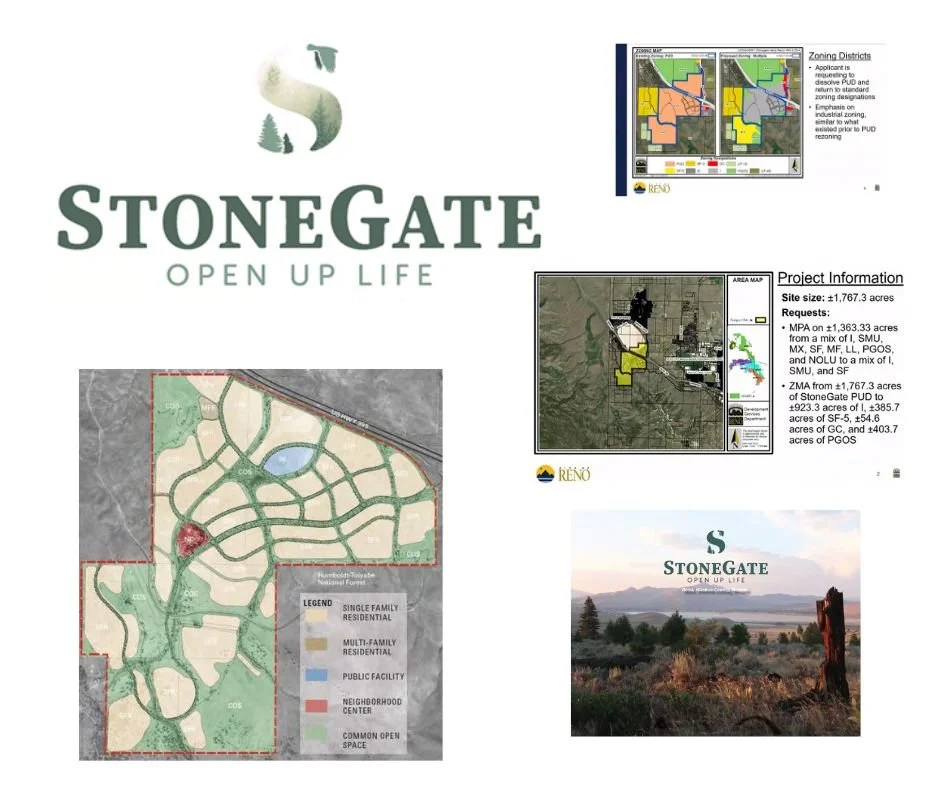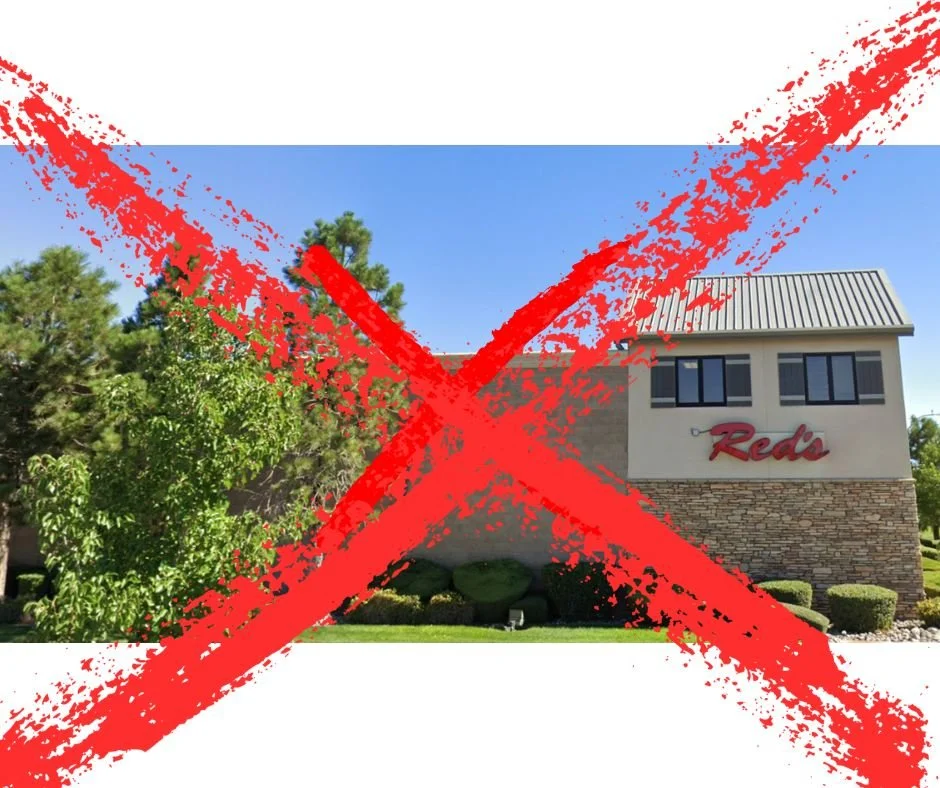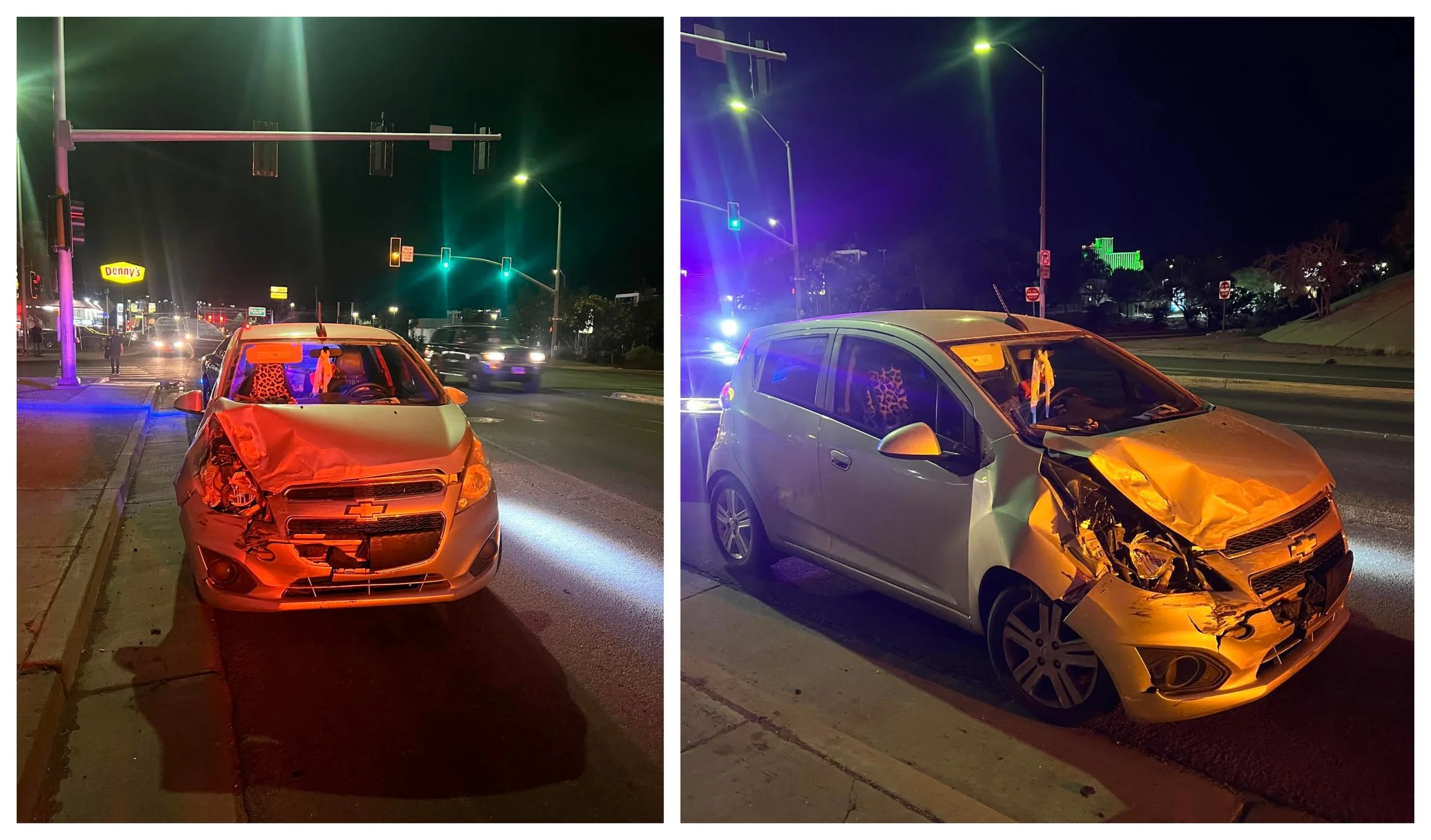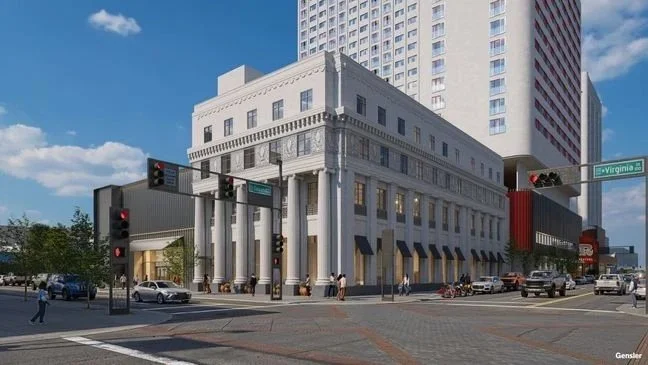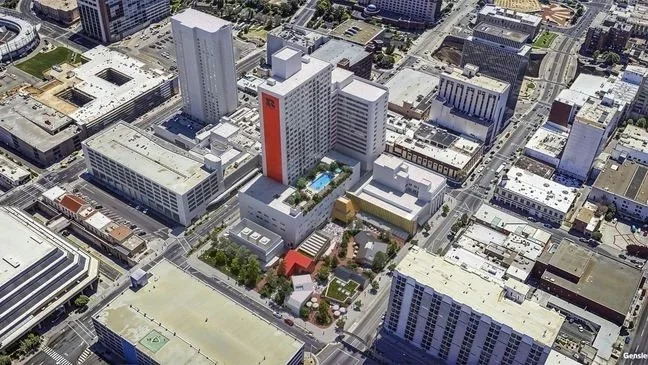An oped submission by William Mantle. with the views and opinions expressed here below those of the author.
Let me review what’s happened. On August 4, 2025, dozens of citizens showed to the Regional Planning Commission (RPC) to provide nearly two hours of public comment across both general and agenda-item-specific comment against StoneGate’s Master Plan Amendment (MPA). The developer (Heinz Ranch Land Co. LLC) wants to change its initial development from 5,000 homes to about 1,300 and replace those homes with a sprawling industrial park of which at least ~15% would be dedicated towards datacenters. TMRPA praised the public's high level of participation as did many of the Planning Commissioners (both City and Regional). Ward 4 Reno City Councilor Meghan Ebert gave public comment as well, and stayed the duration of the meeting.
I was at the meeting. As I recall, there was unanimous public opposition to StoneGate. The reasons were copious: housing needs, desire for commercial space, environmental concerns, issues with the influx of freight/semi-trucks, concerns over fire risk (including the removal of an agreement to provide some fire protection in the current plan), availability of water/electricity, lack of infrastructure, traffic concerns (especially around winter travel disruptions), and no citizen voiced any support, like, or desire for datacenters. Which is interesting because now Reno Mayor hopeful Devon Reese believes they’re vital components of our local emerging economy. His stance has shifted from solely approving datacenters to voicing a need for some standards to be set for them. To be clear, a datacenter is just as useful to Reno if it were built here as anywhere else because of how the internet works. I would like to see our city-lands be given to our people to live. Datacenters can be out by TRIC, if they must be anywhere, but I digress.
Ultimately, StoneGate’s MPA was voted down by the RPC by the narrowest of margins, 5 Ayes: (supporting StoneGate’s MPA were Commissioners)
Velto; Read; Kramer; Lazzareschi; and Giacomin
vs. 4 Nay’s: (opposing StoneGate’s MPA were Commissioners)
Rohrmeier; Flick; Pierce; and Nieberlein.
But William, “there’re more Ayes than Nays!” True. However, MPA approvals require a super-majority of 6 ayes to pass—so StoneGate lost (in full transparency, I had no idea of that requirement along with seemingly everyone else in attendance and the sudden realization of success was palpable). Is that it for StoneGate? No.
Smacking of developer-favored bias, Reno City staff, led by Angela Fuss the Assistant Development Services Director (who represented StoneGate in 2018), are recommending an appeal be filed. I don’t know why staff wouldn’t be neutral in their approach, and it is at least semi-concerning to me that a former representative of StoneGate is now helping to determine the City of Reno’s approach. Staff should simply present the Council with the option to appeal or not so as not to appear to be StoneGate-advocates. On September 10, 2025 the Reno City Council will consider an appeal by StoneGate from its recent rejection. If approved, this would force another hearing in front of the RPC which would likely be heard on September 25, 2025. If rejected, once again, by the RPC the final appeal would be heard at a meeting of the Regional Planning Governing Board on October 9, 2025.
It wouldn’t be a StoneGate meeting without something extra; enter Commissioner Alex Velto (again).
Commissioner Velto had what’s known as a ‘hot mic’ moment during the meeting that zoom attendees could hear, but we in the crowd could not. He spoke to these comments during the meeting, in part, in which he had a conversation with a fellow commissioner that wasn’t intended for the public record. I asked TMRPA for that video or a transcript. They provided both, a video you can listen to, and a transcript (that does not include the hot mic comments, but does include Velto’s reaction to them starting on pg. 82) HERE. I listened to the video (between 1:50:00 and 2:04:00) to discern those hot-mic comments.
The audio quality is poor, choppy, and the conversation is inconsistent. Keep in mind that I’m not a certified reporter, but this is what I hot-mic-heard. Commissioner Velto:
Finds that the public is inconsistent.
That the same people who opposed StoneGate in 2016 are the same people opposing this MPA. That if the developer came back to say that they were doing housing now that the public would fight that too. If the public had ideological consistency in opposition, he would be a heck of a lot more sympathetic. But he’s seen the same people oppose housing and development that is industrial; he finds it very frustrating.
Complains about the public’s focus on datacenters.
He wonders whether it’s even appropriate to entertain discussion on them because there are other regulatory processes that must occur before a datacenter could be built. Particularly, he finds it frustrating that a datacenter being built would require NV energy to review whether there is enough power/capacity available and so the public may be complaining about something that may not even be able to be built. Also, that a focus on datacenters as an issue detracts from the attention other issues should receive, like traffic concerns. That the City of Reno is going through a regulatory review in October and even if this was approved, that any datacenter consideration would have to abide that process.
That there’s not going to be housing like StoneGate initially proposed because he believes that if they could have afforded to build the housing they would have.
Since it’s been 9 years since the original plan has been proposed that there’s just no way that they’re [StoneGate] is trying to trick the commission to come back 9 years later with this amendment and that it was their plan all along. It just doesn’t make sense to him.
Hasn’t seen the data about the costs [to build houses] and fears an appeal/lawsuit.
He doesn’t know what made [StoneGate] pivot to this new plan. He’s looked at the cost for datacenters and their use of water and it’s less than what people understand. The mistake he sees agencies make are that they don’t consider the evidence, they get appealed, they get sued, and they pay out a ton of money. He’s always looking at litigation. He’s cautious of the things the agencies say. Reno gets sued, the city goes against development, and it costs a ton of money.
Wants the public to be trained on how to cater their arguments to make them persuasive to him.
He thinks we don’t know how to say what we need to say. That we should be providing data that he can use. And that the ‘data’ the public presented today wasn’t actionable.
There’s a lot to unpack here and much is worthy of being addressed. However, I will primarily focus on #5, that Commissioner Velto believes that the public doesn’t properly advocate for itself and requires training. Firstly, the public has been engaging for months/years on this topic, so it’s confusing to me to think it’s been somehow ‘wrong’ all this time. If Mr. Velto wants to see more from anyone, it should be either the applicants or staff. It’s wrong to ask residents to do more and shift the burden to residents when the ‘experts’ should be doing a ‘better’ job, whatever Mr. Velto believes that to be.
The United States is (supposed to be) a representative democracy. We the people elect representatives to legislate for the citizens and through electing them we hold them accountable. While Commissioner Velto was not elected, but instead appointed by an elected official, the system is designed to work the same. Namely, that if a layman, a regular citizen, an average-Joe, expresses their desire/interest at a public meeting that a representative’s vote will reflect the people’s collective will in a weighed balance.
I am wrong, according to Velto’s statements. It is not enough for the whole of the interested public, those who took the time out of their day to write, speak, and appear in person at the August 4, 2025 RPC meeting to unanimously reject StoneGate’s MPA. We needed to do it in a particular fashion.
The beauty that is supposed to be a representative government is that our citizens don’t have to learn every law/policy, every nuance of Robert’s Rules of Order, and, broadly, don’t have to become an expert on the ‘thing’. Our representatives are supposed to do all that for us, we tell them what we want, and they make it happen. Which is basically the opposite of what happened on August 4, 2025. Plainly, I disagree with Mr. Velto’s stance.
Representatives on the RPC must consider the law in balance of the public’s interest and statements, which was a sentiment we heard a few times at the meeting from TMRPA director Jeremy Smith. We cannot ask our citizens to be pseudo-representatives themselves because that’s not how our system is supposed to operate. We’re laymen, and it’s important that as much charity as possible be given to the sentiments of the public because they aren’t lawyers or planners—they’re just people trying to help shape their home.
I wished I’d of heard unanimously from our representatives on the RPC a concern that this MPA lacked broad public support. It’s unicorn-rare to hear a representative state that they’re not in support of an agenda-item because clearly the public doesn’t support it or that the applicant/developer hasn’t done enough to earn the trust/support of the people. And we must be concerned because oftentimes approvals today are grandfathered into regulations of tomorrow. Case in point, StoneGate is being reviewed under the 2019 Regional Plan, not the 2024 plan because of when this amendment was submitted.
Instead, in Velto’s ideal world, we citizens should… what? Propose counter-development plans? Should the public pool money to pay a firm like Wood Rodgers to do a 25 minute presentation filled with: hopes that traffic will improve by 2050, That the RTC might consider public transportation build-outs to Cold Springs due to the MPA (no evidence), a biased view on planned traffic vs. the MPA without considering the benefit of people living somewhere permanently, that creating these ‘jobs’ here instead of housing will stimulate greater commercial interest (no evidence), that fewer people will have to commute to work with this MPA (no evidence), and they don’t provide a contrast they don’t provide a contrast between what they said they’d build versus the MPA—it’s just what they’re selling today.
Complex ideas shouldn’t be presented in this way. It’s like choosing paint for a house you haven’t seen, interviewing for a mystery job, or drinking a cup of coffee without feeling for hot it is first. We must know what we have to know what we need and want. StoneGate didn’t hold public workshops, they didn’t invite the public to review or consider this MPA (outside of meetings). They didn’t talk about what they weren’t going to do (like contribute to fire safety in the area). They didn’t disclose what, how, when, or why they couldn’t build housing any longer or what efforts they’ve made to effectuate building houses. Instead, we get a new marketing effort that tries to makes this MPA look like the best thing since sliced bread. But they’ll say they didn’t have to, that it’s not required of them. That’s true. However, without that engagement how is the public supposed to come to trust in a development or developer?
The people spoke. They showed up. They were barely listened to. The people clearly prefer what was agreed upon in 2018 which is shown below and summarized as 3.9x less employment, 3.7x more housing, and 5.4x more children/students for the additional resources in sewage/water/traffic as needed.
Why do the people want this? I suspect that it’s because people want to have a place to live in their own city. They want community like what’s stated in the actual Regional Plan, pg. 37.
Somehow, four Commissioners found a way, a reason, and a path that agreed with the people. Five Commissioners did not. How is it that when considering the criteria of Population Growth, Regional Form, Public Facilities/Services , Natural Resources & Regional Coordination
we can have such disagreement on the public’s perception in context of the law? The people stated their collective, broad, and nuanced disagreement with the MPA and a majority of our representatives didn’t form votes that agreed with the public, but instead they were able to agree with the developer.
Personally, I don’t believe we are advocating wrong. There might be something wrong with how our representatives advocate for us, but it’s essential we keep showing up, pressing our interests, and seeking fairness. We will develop, we will grow, but how we grow matters. And again, I disagree with Mr. Velto’s stance, we must be vigilant of what gets approved today because there’s no promises future regulations will make previously-approved developments adapt to new regulations.
On September 10, 2025 you have your next chance at being the change and making the difference in our region. The City of Reno does not have to approve an appeal by StoneGate. Frankly, StoneGate’s current ‘plan’ and efforts are fatally flawed. The North Valleys deserve better. I see it, the public at the RPC meeting saw it, and I hope you can see it too. Use your voice by writing in, showing up and speaking, and demanding meetings of your Reno City Councilors. Advocate the way you believe is best, for what you want to see in our region, and don’t let anyone tell you what to say or how to say it (of course, be civil). You’ve already been praised by TMRPA and planning commissioners. Your voice matters, but you have to choose to use it. I hope to see you September 10, 2025 at Reno City Hall.
Our Town Reno Citizen’s Forum Entry by William Mantle
